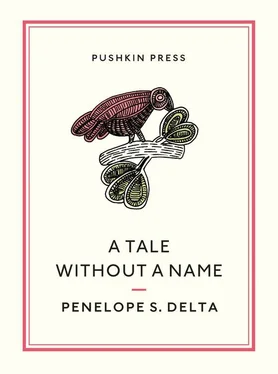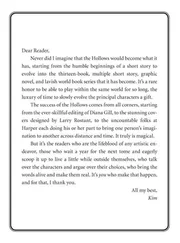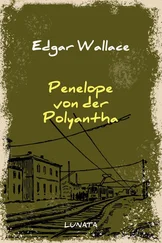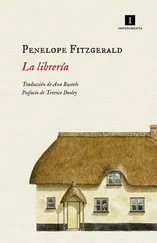Polycarpus dashed straight up to Little Irene.
“My Princess, the donkey’s head! The hour has come!” he cried, his voice faltering.
Nobody understood him.
“What hour? What are you talking about?” they all asked.
Little Irene alone understood. She stood up, blushing with delight.
“Has a message come from the King the Royal Uncle?” she asked.
“Yes, my Princess,” replied Polycarpus. “He is seeking to have the Prince as his son-in-law.”
“What’s that?” bellowed the King.
Knowledge had risen too, and asked nervously:
“What answer did the Prince give?”
“Here is his answer!” cried Little Irene happily.
And climbing on a stool, she seized from above the gold-leaf cabinet the donkey’s head that hung there on a nail with its tin crown; she wrapped these in the red silk scarf that she had kept safely away in her drawer, and put everything in a basket. Then she sewed a sturdy piece of canvas over the top, and handed the basket to Polycarpus.
The equerry mounted his horse once more, and galloped down to the camp.
The Prince took the basket, and handed it to the envoy of the King the Royal Uncle.
“Take this,” he said, “and give it to your liege. Do not forget to repeat to him the words I said to you. Now go.”
And turning to the High Chancellor of the King the Royal Cousin, he said:
“Tell your lord that I thank him. Gifts my father the King cannot send him yet, for our kingdom is still poor, and we need all our florins. But our friendship he will indeed have, and joyfully we accept his offer of alliance, which does us honour. Godspeed to you.”
The two envoys bowed deeply, and each went on his way.
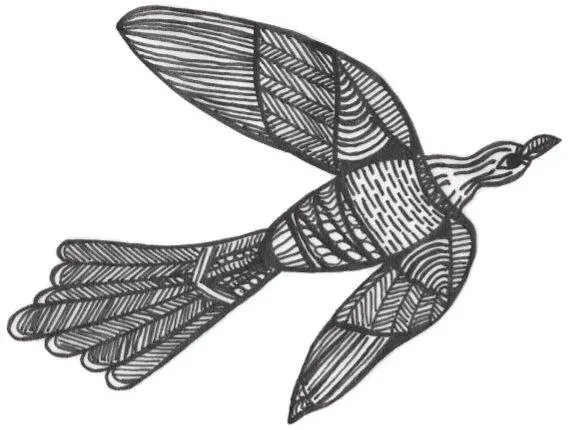
SILVER CASKET IN HAND, the Prince leapt on the white mare, the gift of the King the Royal Cousin, and accompanied by Polycarpus he scaled the mountain all the way up to the palace.
The table was already set. They were waiting for the two of them before they might begin.
The Prince ran up to his father, knelt before him and handed him the silver casket.
“My father and my king,” he said with feeling, “I took away from you your crown one day, when the nation demanded sacrifices from each of us. Today the nation lifts up its head once more, it has become strong, and with its strength it now inspires the respect of its enemies. Take back your crown, my king and father, it is the nation’s gift to you.”
The King lifted up the lid, and, seeing the magnificent crown with its precious stones, he stood there stunned, his mouth agape.
“What is this? How came you by it?” he asked at last.
“It is the gift of the King our Royal Cousin, who asks for our friendship and desires an alliance with us,” replied the Prince.
The King then rose, took the crown from the casket, and placed it on his son’s head.
“You wear it, my son,” he said, visibly moved. “You deserve such a crown, because it is with your hard efforts and your strength that you have succeeded in earning it. A while ago now, I made you Regent and my equal. Now I am an old man, I am weary of hearing about matters that require my attention; I wish to spend my final years in peace. You take the crown, together with its heavy burdens, and rule now on your own the kingdom you have raised from the dead by force of will alone.”
The following day, the King convened all his people to the camp by the riverbank, and there announced to everyone that he was stepping down from his position as ruler of the State, and that he was surrendering the crown and the kingship to his son, the Prince.
With these words, he placed the precious crown on his son’s head, and anointed him King of the Fatalists.
From every breast, there sprang a great cry:
“Long live Prudentius II! Long live our King!”
The people’s joy knew no bounds. They all wanted to kiss the hands of the old King who had recognized the worth of his son, and of the new King, the saviour of their nation.
That day was proclaimed a holiday across the entire land.
When the new king, Prudentius II, went up to the palace with his new High Chancellor, Polycarpus, he found again all the family gathered in the dining hall.
He looked at the empty hook on the wall above the gold-leaf cabinet, and let a deep sigh escape from his lips.
“Now that that revolting donkey’s head is gone,” he said, “I can finally say that I feel free to undertake great things.”
And, turning to Knowledge, who was smiling at him, joyful and blushing pink:
“Would you like to help me, Knowledge?”
“I?” exclaimed the maiden, turning an even deeper hue of scarlet. “I? How could I be of help to you?”
“Be my wife and my queen,” said Prudentius. “You have done me so much good with your advice! Tell me, Knowledge, wouldn’t you like to help me govern this land?”
But before the maiden had time to reply, the old King had clasped both of them in his arms.
“With all my blessings,” he said, “ yes! Together you shall rule the state.”
“And when the King our Royal Uncle finds out about your engagement, what will he say?” asked Little Irene, laughing gaily.
“He shall request your hand for his son,” said Mistress Wise. And with a wink made a sign to the King to look at Polycarpus.
The miserable High Chancellor had grown ashen upon hearing the words of Mistress Wise; trembling all over, he too was looking at Little Irene, as though expecting to hear from her lips his own death sentence.
The Princess blushed a bright ruby red, turned and saw him; she lowered her eyes, shy and numb.
“And… would you accept that offer, my Princess?” asked the High Chancellor, his voice choking.
“No, Polycarpus…” murmured Little Irene, without looking at him.
“I do indeed hope that the King our Royal Uncle shall never extend to us such an offer,” said Prudentius, laughing mirthfully. “Or his anger will have reason to flare up again. For we very much desire Little Irene to remain here.”
And taking his sister’s hand, he placed it on the hand of Polycarpus, who almost lost his wits for joy.
“On the contrary! He should make the offer, so that he might receive a second serving of our contempt!” said the old King, who could still not put the donkey’s head out of his mind.
And happy, embracing his children, he added:
“And should the whimsy take him, just let him come back with his army and then he shall feel indeed how sharply Miserlix’s arrows can pierce.”
But the poor King the Royal Uncle never had a chance of receiving that second mighty serving of contempt, nor did he have occasion to test whether Miserlix’s arrows could pierce or not.
When he opened the basket and recognized the donkey’s head, and heard the Prince’s words as repeated to him by his High Chancellor, such mad fury seized hold of him that he fell like a log on the floor.
And when they lifted him up to carry him to his bed, they saw that he was dead.
On the day of his coronation, Prudentius II went to the river to hold a memorial service in honour of all those who had fallen during that famous nocturnal battle.
Under the shade of the plane trees, two white crosses stood side by side: the grave of Polydorus and the grave of the youth from the tavern.
Prudentius placed a laurel wreath on each cross.
“Place a second wreath on this one, my lord,” said the master builder, indicating Polydorus’s grave.
“A second wreath? What do you mean?”
“In honour of the Unrevealed Hero,” replied the master builder.
Читать дальше
